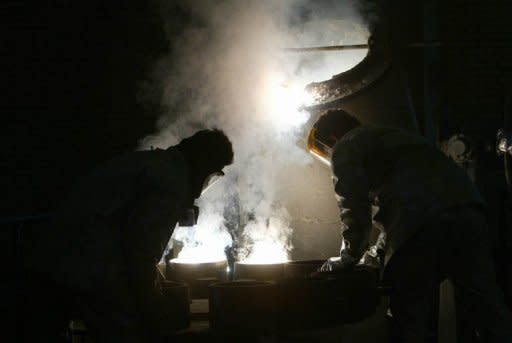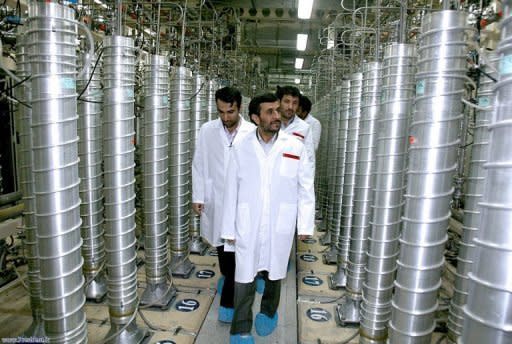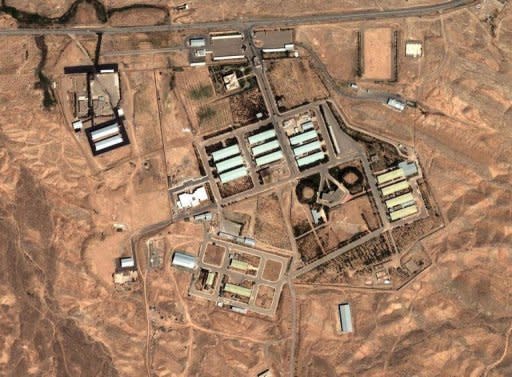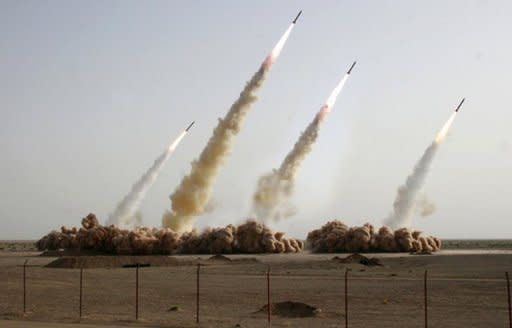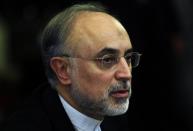Iran says nuclear talks to resume on April 13
Long-stalled talks between Iran and world powers are to be revived on April 13 at a place yet to be agreed, Iranian Foreign Minister Ali Akbar Salehi announced on Wednesday. "The date has been set, but the negotiations for the venue are still ongoing," Salehi told AFP. "Turkey has announced its readiness to host the talks, and my personal priority is Istanbul," he added. The talks carry hopes of defusing a tense international showdown over Iran's nuclear activities that has sent oil prices soaring. Israel has brandished the threat of possible military action against Iran's nuclear sites, while the United States has put its energies into sanctions and diplomacy but has not ruled out the military option. Salehi made the announcement of the date for the talks as he welcomed Turkish Prime Minister Recep Tayyip Erdogan to Tehran for a two-day visit focusing on Iran's nuclear programme and bilateral ties. On Erdogan's arrival, Salehi told the official IRNA news agency that the next round of the talks between Iran and the P5+1 group comprising the United States, Russia, France, Britain, China and Germany would take place on April 13. Speaking to AFP, Salehi said that a "suggestion" from the P5+1 for a venue had been received and was being studied, and that the location "will be announced soon." Erdogan arrived in Tehran from South Korea, where he had attended a nuclear security summit with other world leaders including US President Barack Obama. At a media conference with Salehi, Erdogan dodged a question about whether he was carrying a message from Obama for Iran's leaders. "During a meeting in South Korea, there were discussions with them (the P5+1 nations) about the talks taking place in Turkey, and there were steps in that regard and now we are waiting for their response," he replied instead. Erdogan also slammed the bellicose language directed against Iran, saying: "Military threats against a country that seeks to master peaceful nuclear technology are not acceptable." Salehi likewise did not directly respond to an earlier AFP question about Erdogan communicating any message from Obama, saying: "So far we've only talked about bilateral issues." Obama warned in Seoul on Monday at the start of the nuclear summit that "time is short" for a diplomatic solution to the standoff with Iran. "Iran must act with the seriousness and sense of urgency that this moment demands," he said. The last round of Iran/P5+1 talks was held in Istanbul in January 2011 and ended in failure. The round before that, in late 2010, was in Geneva. The United States and its Western allies believe Iran is working towards a nuclear weapons capability. Tehran denies that, saying its atomic programme is exclusively peaceful. In Brussels, a European diplomat confirmed to AFP that the next round of negotiations would start on April 13 but that a location had not yet been agreed. Turkey's ambassador to Tehran was quoted by Iran's Press TV as saying: "Turkey stands ready to host the talks between Iran and the P5+1 group, but everything depends on an agreement between Iran and the P5+1." Erdogan, who was accompanied by several key ministers and intelligence and military officials, was to meet Iranian President Mahmoud Ahmadinejad and supreme leader Ayatollah Ali Khamenei during his visit, Iranian officials said. Turkey relies on Iran for 30 percent of its oil imports, and has refused to go along with sanctions imposed by the United States and Europe, saying it will observe only UN-mandated restrictions on Iran. However, Turkey is also a NATO member, and it has agreed to deploy parts of an anti-missile shield that could be used against Iran, a point that has generated friction in the past with its neighbour. The two countries are heavyweight players in the Middle East. They hold different positions on several issues, notably on Syria. Ankara wants to see Syrian President Bashar al-Assad step down as part of a solution to the crisis there, while Tehran is giving Assad political and material support.

